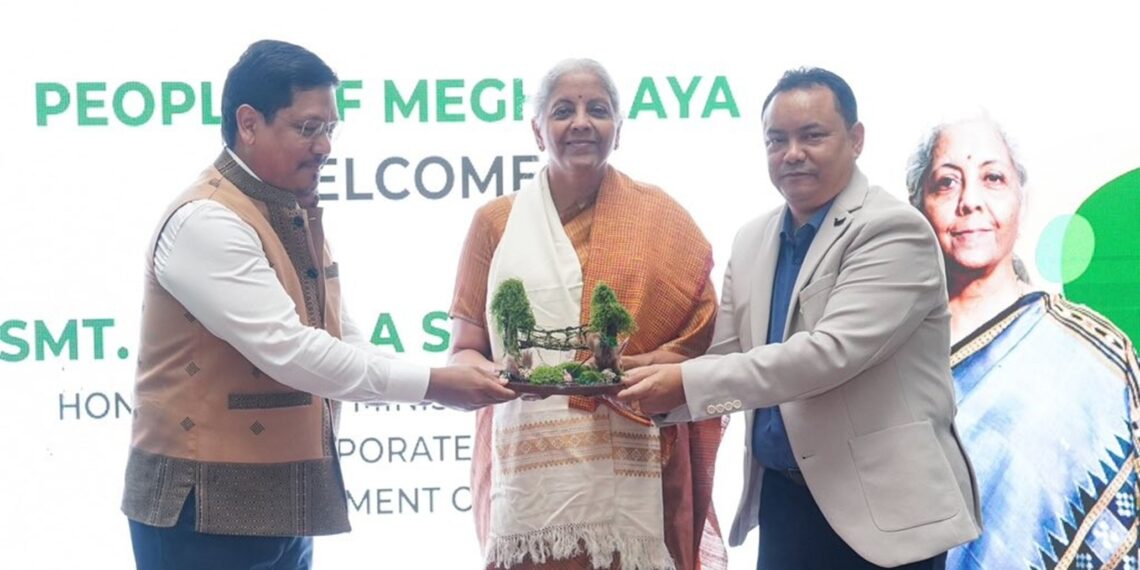Shillong: Union Finance Minister Nirmala Sitharaman has endorsed Meghalaya’s renewed push to secure UNESCO World Heritage recognition for the state’s iconic living root bridges, calling the community-crafted structures a global symbol of sustainable living and indigenous innovation.
During her visit to Siej village in East Khasi Hills on Saturday, Sitharaman lauded local efforts to revitalise the long-pending nomination through deeper community involvement and global collaboration.
“Global recognition isn’t about boasting; it’s about telling the world that this traditional knowledge existed here first,” she remarked while addressing villagers. “What you’re doing is not only impactful but also scalable.”
The living root bridges—handcrafted over generations by the Khasi and Jaintia tribes using aerial roots of rubber trees—are found predominantly in Meghalaya’s southern slopes near the Bangladesh border.
These living structures blend human ingenuity with ecological harmony and have drawn international attention for their uniqueness and sustainability.
Meghalaya had initially submitted a dossier to UNESCO in 2018 under the “cultural landscapes” category.
Although the proposal was well-supported by experts and the state government, progress stalled due to documentation gaps and the need for a more inclusive, community-led mapping process.
Sitharaman also held discussions with village elders, traditional heads, and beneficiaries of the Payment for Ecosystem Services (PES) scheme—an initiative funded by institutions like the World Bank, KFW, and ADB.
The interactions highlighted how indigenous ecological knowledge is being adapted to modern sustainability goals.
Later, Sitharaman became the first Union Minister to visit Sohbar, a border village in East Khasi Hills now included under the second phase of the Vibrant Villages Programme (VVP).
She emphasised the strategic importance of border areas, stating, “Sohbar is not the end of India; it’s the beginning.”
She outlined development priorities for the village, including improved road networks, digital and telecom connectivity, electricity, television access, and banking facilities within a 5-kilometre radius to boost rural entrepreneurship and financial inclusion.
Sitharaman is scheduled to wrap up her four-day Meghalaya tour with a visit to the Ramakrishna Mission Ashram School in Sohra on Sunday.
The institution, known for its longstanding contributions to education, healthcare, and community development in the Khasi Hills, has played a transformative role in empowering rural youth through value-based learning and skill-building initiatives.















